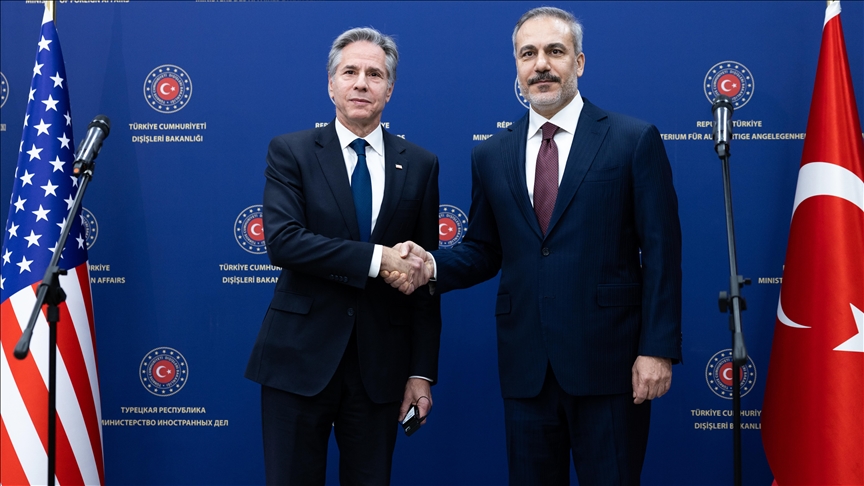Turkish stocks soar as local investors seek refuge from blistering inflation
Turkey’s stock market notched up a world-leading rally in 2022 as a painful spell of inflation sent local savers rushing to equities in search of returns and companies boosted their profits despite the economic headwinds.
The Borsa Istanbul 100 equities index has soared almost 200 per cent this year. Even in US dollar terms, which take into account a steep fall in the lira, Turkish stocks rallied 110 per cent, compared with a fall of 22 per cent for MSCI’s broad gauge of emerging market equities.
The largely domestically driven boom in Turkish equities highlights how the government’s unorthodox management of the country’s $800bn economy is rippling into asset markets. Inflation reached a high of 85.5 per cent this year as the country’s central bank, which is effectively controlled by Turkish president Recep Tayyip Erdoğan, sharply reduced interest rates at a time when most other countries are raising them.
With inflation and a sagging lira rapidly eating away at Turkish residents’ purchasing power and the government pushing back against holding foreign currencies, many are betting on the stock market.
“There is a lack of alternatives to make money,” said Enver Erkan, chief economist at Tera Securities in Istanbul. “People who want to protect their savings from inflation and to increase the value of their investments in real terms don’t have many other places to turn.”
Turkey’s lira has tumbled 29 per cent against the US dollar this year as the rate cuts have plunged the returns that investors can earn on Turkish fixed-income assets deeply into negative territory.

Asset manager Schroders said in a report last month that “the primary driver of the [stock] market performance this year has been high domestic inflation. With interest rates so deeply negative, and government yields unattractive, local investors have been forced into the market to try to protect their savings from rampant inflation.”
The number of investors in Turkey’s stock bourse has jumped to 3.8mn this month from 2.4mn at the end of last year, according to data from Turkey’s Central Securities Depository.
“I used to avoid the stock market because it scared me, I looked at it like gambling. I would buy dollars and gold to protect my savings, but in lira terms, everything is losing value,” said Gürsel Arslan, an individual investor. “These days you can make a maximum 2 to 3 per cent interest on a savings account at a bank. But with a nice piece of paper, you can easily make a profit of 25 to 30 per cent in a month.”
Arslan still buys gold and silver after taking profits on equity positions but said, “I never keep it in lira.”

The gains have been broad for Turkish equities this year: every stock in the benchmark Bist 100 index — except for two — has posted year-to-date gains, according to Refinitiv data.
Publicly traded Turkish companies have also posted robust profit growth in 2022 despite the economic headwinds. Earnings per share for Bist 100 companies are forecast to rise more than 200 per cent in 2022 compared with 2021, according to FactSet data. The increases in earnings have helped to restrain valuations on Turkish stocks. The Bist 100 trades at about six times expected earnings over the next year, compared with the 15-year average of eight times, JPMorgan data show.
Despite this year’s upbeat performance, foreign investors have been withdrawing from Turkish markets for the past four years as the lira has tumbled, inflation has soared and concerns have grown about Erdogan’s unconventional economic policies. International investors have also complained that some of the government’s policies, including moves to make it difficult to bet against the lira, have made it difficult to hedge their holdings against currency fluctuations.
The government has been able to steady the lira in recent months through a series of measures aimed at dissuading people and businesses from holding dollars and launching a large-scale currency intervention ahead of a major election scheduled for next June. However, these moves have done little to boost investors’ confidence in the county’s markets.
The share of foreign ownership in Turkey’s stock market fell to 29.8 per cent this month, from 65 per cent at the end of 2018, according to Turkey’s Investor Relations Society.

There are tentative signs that foreign investors are beginning to at least test the waters after this year’s big gains. Turkish equity funds have posted five weeks running of inflows, bringing in $165mn in new client money over that period, according to data provider EPFR.
Erdoğan has said the trickle of foreign money is a vote of confidence in his economic and foreign policies and dismissed concerns among some analysts that Turkey’s equity market has become an unsustainable bubble.
“The increasing interest of foreign investors in our country, including our capital markets, is a manifestation of the trust in the Turkish economy and its diplomacy,” he told an investors group this month.
Still, Erkan said many foreign investors were delaying their decisions on Turkish stocks. “Foreign investors are waiting for the election. In these economic circumstances, they are not going to increase their presence. They sold their investments because of those circumstances and will wait for them to change after the election.”
Additional reporting by Kate Duguid



